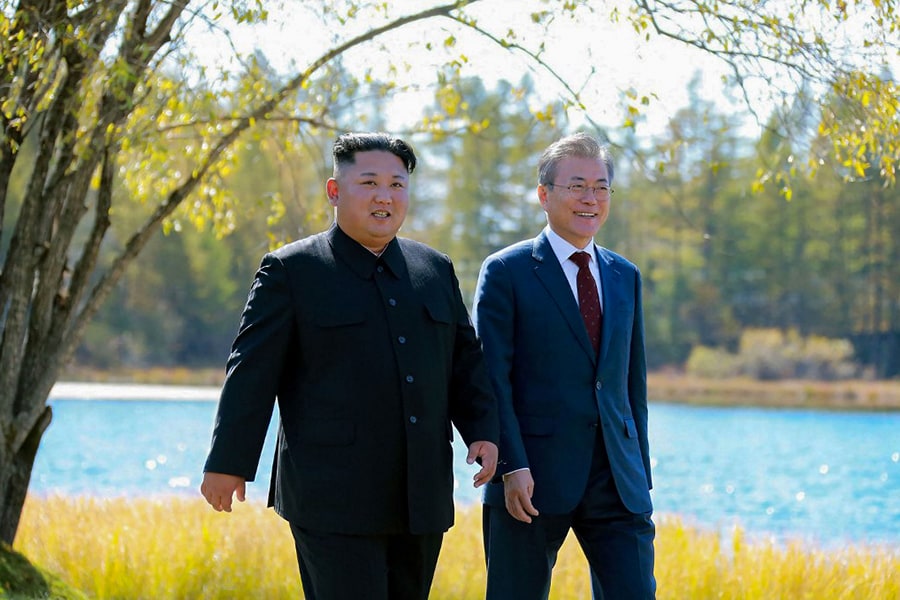
Departing South Korean leader exchanges farewell letters with Kim Jong Un
The South Korean president asked Kim to resume dialogue with the United States to try to end the cycle of tensions caused by North Korea's nuclear weapons development and missile launches, which have led to international sanctions
 This picture taken on September 20, 2018 and released by Korean Central News Agency (KCNA) via KNS shows North Korea's leader Kim Jong Un (L) and South Korean President Moon Jae-in (R) walking together during a visit to Samjiyon guesthouse near Mount Paektu in Samjiyon. (Photo by KCNA VIA KNS / various sources / AFP)
This picture taken on September 20, 2018 and released by Korean Central News Agency (KCNA) via KNS shows North Korea's leader Kim Jong Un (L) and South Korean President Moon Jae-in (R) walking together during a visit to Samjiyon guesthouse near Mount Paektu in Samjiyon. (Photo by KCNA VIA KNS / various sources / AFP)
SEOUL, South Korea — South Korea’s departing president, Moon Jae-in, exchanged farewell letters with North Korea’s dictator, Kim Jong Un, both governments announced on Friday, capping a checkered relationship filled with highs and lows and currently locked in a diplomatic stalemate.
Moon, 69, who is barred by law from seeking reelection, will step down on May 10 after a single five-year term. In his letter sent Wednesday, he urged Kim to use “dialogue to overcome the era of confrontation” on the divided Korean Peninsula, according to Moon’s spokeswoman, Park Kyung-mee.
The South Korean president asked Kim to resume dialogue with the United States to try to end the cycle of tensions caused by North Korea’s nuclear weapons development and missile launches, which have led to international sanctions.
“There were moments of regret and memories of overwhelming emotions,” Moon wrote in the letter of his relationship with Kim. “But I believe that holding our hands together, we have taken a sure step toward changing the fate of the Korean Peninsula.”
Moon said that he would soon return to “life as an ordinary citizen,” but that his heart will be dedicated to efforts to build peace between the two Koreas.
©2019 New York Times News Service







